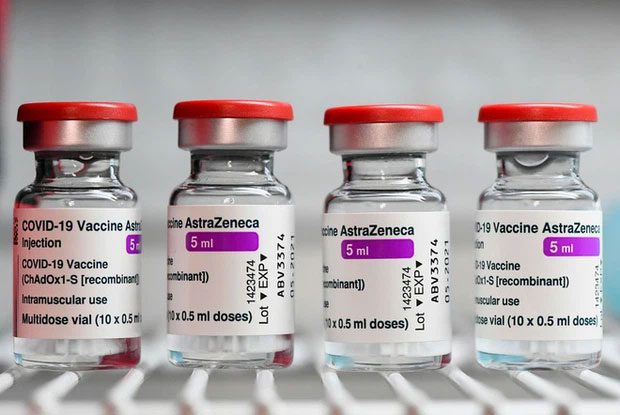The AstraZeneca vaccine for Covid-19 is the most effective among the four types of Covid-19 vaccines in terms of reducing the risk of hospitalization, according to a new study.
According to the new research, only 1.52% of those vaccinated with AstraZeneca/Oxford had to be hospitalized due to Covid-19, with a mortality rate of just 0.03%.
For those who received the Pfizer vaccine, the hospitalization rate is 1.99%, while the mortality rate is 0.15%.
In comparison, the mortality rate among unvaccinated individuals is 1.32%.

AstraZeneca/Oxford Covid-19 vaccine vials.
In the UK, 25 million people have been vaccinated with AstraZeneca, while 21 million have received the Pfizer vaccine (as of August 27).
The study also examined the effectiveness of the Russian Sputnik V vaccine, which has a hospitalization rate of 2.24% among those vaccinated with it due to Covid-19. The Sinopharm vaccine has a hospitalization rate of 6.94%.
In comparison, the hospitalization rate for unvaccinated individuals is 13.22%.
The research was conducted by researchers in Bahrain in collaboration with scientists at Columbia University in New York, USA.
The research team stated: “All four types of vaccines reduce the risk of contracting the coronavirus, hospitalization, ICU admission, and death when compared to unvaccinated individuals.”
Dr. Simon Clarke, a professor of cell microbiology at the University of Reading (UK), said: “This study shows that people in the UK can be confident that they are receiving the best vaccines available. The AstraZeneca and Pfizer vaccines provide strong protection.”
Another study in July found that the AstraZeneca vaccine provides strong protection against Covid-19 that may last a lifetime.
In addition to generating virus-killing antibodies, the AstraZeneca vaccine also creates “training camps” for T cells in the body. These T cells can destroy viruses, even new variants.
This means that the body can continue to produce important T cells for a long time—potentially for a lifetime—after the antibodies gradually wane.
Scientists from the University of Oxford (UK) and Switzerland wrote in the journal Nature that the protective ability of T cells is a “key feature” of adenovirus vaccines like AstraZeneca and Johnson & Johnson.



















































